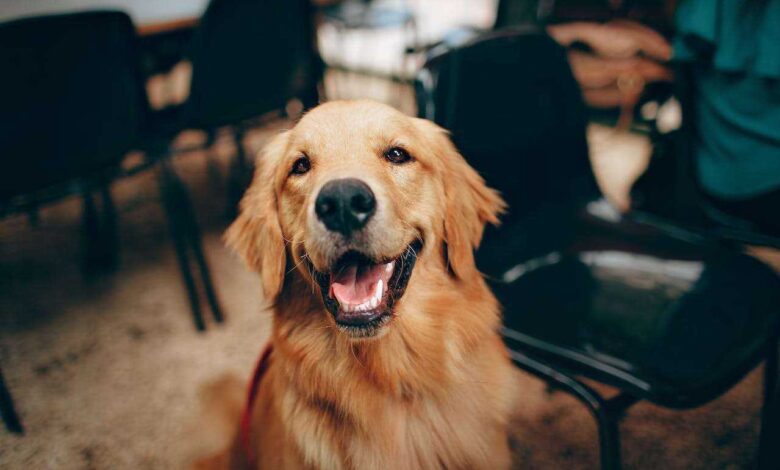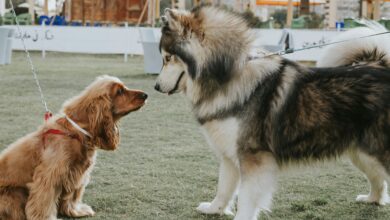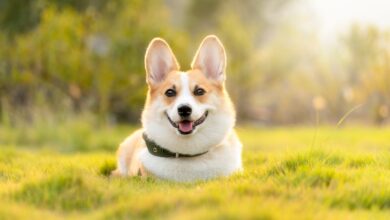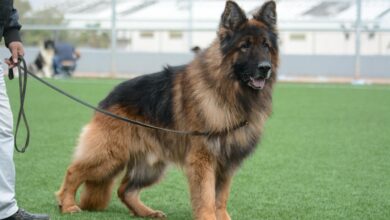
Welcoming a Golden Retriever puppy training tips into your home is an exciting adventure filled with love, joy, and, of course, a bit of puppy mischief. These intelligent and affectionate dogs are known for their gentle nature and boundless enthusiasm, making them wonderful companions for families and individuals alike. However, like all puppies, Golden Retrievers require proper training to become well-behaved members of the household. In this comprehensive guide, we’ll explore some essential training tips to help you raise a happy, healthy, and well-behaved Golden Retriever puppy.
Start Early Socialization:
- Importance: Early socialization is crucial for Golden Retriever puppies to develop good behavior and confidence around people, animals, and different environments.
- How: Begin socializing your puppy as soon as possible, ideally between 3 and 14 weeks of age, as this is the critical socialization period. Introduce your puppy to various stimuli, including different people, animals, surfaces, sounds, and environments. Enroll in puppy socialization classes to provide structured socialization opportunities and positive experiences.

Positive Reinforcement Training:
- Method: Positive reinforcement training focuses on rewarding desired behaviors with treats, praise, toys, or attention, encouraging the puppy to repeat those behaviors.
- Benefits: This method strengthens the bond between you and your puppy, promotes trust and confidence, and makes learning fun and enjoyable for the puppy.
- Examples: When teaching commands like sit or stay, reward your puppy with a treat or praise when they correctly perform the behavior. Use a clicker to mark the desired behavior and follow up with a reward.
Basic Obedience Training:
- Commands: Teach essential commands such as sit, stay, come, down, and heel. Break down each command into small, manageable steps and be patient with your puppy’s progress.
- Consistency: Use consistent cues and hand signals for each command and practice them regularly in different environments to generalize the behavior.
- Practice Sessions: Keep training sessions short (5-10 minutes) and frequent throughout the day to maintain your puppy’s focus and prevent boredom.
Crate Training:
- Purpose: Crate training provides a safe and comfortable den-like space for your puppy, helping with housebreaking, preventing destructive behaviors, and providing a sense of security.
- Introduction: Introduce the crate gradually, making it a positive and inviting space by placing treats, toys, and bedding inside. Associate the crate with positive experiences like feeding meals or offering treats inside the crate.
- Gradual Progress: Start with short periods of crate confinement while you are home, gradually increasing the duration as your puppy becomes more comfortable. Avoid using the crate for punishment.
Housetraining:
- Consistency: Establish a regular schedule for feeding, potty breaks, and outdoor trips to help your puppy learn when and where to eliminate.
- Supervision: Supervise your puppy closely indoors, especially after eating, drinking, sleeping, or playing, as these are times when they are likely to need a bathroom break.
- Cues and Rewards: Take your puppy outside to their designated potty area and use verbal cues (such as “go potty”) to encourage elimination. Praise and reward your puppy immediately after they eliminate outdoors to reinforce the behavior.
Chew Toy Training:
- Purpose: Golden Retriever puppies have a natural urge to chew, and providing appropriate chew toys helps satisfy this instinct and prevents destructive chewing on furniture or belongings.
- Variety: Offer a variety of chew toys in different textures, shapes, and sizes to keep your puppy engaged and prevent boredom.
- Supervision: Supervise your puppy during chewing sessions to ensure they are using toys safely and to redirect them if they attempt to chew on inappropriate items.
Leash Training:
- Introduction: Introduce your puppy to the leash gradually, allowing them to sniff and investigate it before attaching it to their collar.
- Positive Association: Associate the leash with positive experiences by offering treats and praise while your puppy wears the leash indoors and gradually moving to short outdoor walks.
- Consistency: Practice loose leash walking and reinforce good walking behavior with rewards, gradually increasing the duration and distractions as your puppy becomes more proficient.
Socialization with People and Animals:
- Exposure: Expose your puppy to a wide variety of people, including different ages, genders, ethnicities, and appearances. Encourage positive interactions with friendly strangers by offering treats and praise.
- Other Animals: Introduce your puppy to other dogs, cats, and animals in controlled environments to help them learn appropriate social skills and body language.
- Safe Environments: Choose safe and clean environments for socialization, avoiding areas where your puppy may encounter aggressive dogs or unsafe conditions.
Consistent Rules and Boundaries:
- Family Consistency: Establish consistent rules and boundaries for your puppy’s behavior across all family members to prevent confusion and promote consistent training.
- Training Reinforcement: Ensure everyone in the household follows the same training protocols and reinforces desired behaviors consistently.
Patience and Persistence:
- Expectations: Understand that training takes time and puppies learn at their own pace. Set realistic expectations and be patient with your puppy’s progress.
- Positive Reinforcement: Focus on rewarding desired behaviors rather than punishing mistakes. Celebrate small victories and progress along the way to keep training sessions positive and enjoyable for both you and your puppy.
Golden Retriever Puppy Training Tips
Raising a Golden Retriever puppy is a rewarding experience that requires patience, consistency, and love. By starting early, being consistent, and using positive reinforcement techniques, you can help your puppy develop into a well-mannered and well-adjusted adult dog. Remember to socialize your puppy, provide plenty of mental and physical stimulation, and establish a routine to set them up for success. With dedication and care, you and your Golden Retriever puppy will enjoy many happy years together.
FAQs:
- How long does it take to train a Golden Retriever puppy?
- training duration varies depending on the individual puppy, consistency of training, and desired skills. Basic obedience training typically takes several weeks to several months, while ongoing reinforcement and socialization continue throughout the dog’s life.
- What are some common training mistakes to avoid?
- Common training mistakes include inconsistency, punishment-based methods, skipping socialization, and not providing enough mental and physical stimulation. Avoid rushing training sessions and ensure they are fun and rewarding for your puppy.
- Should I enroll my Golden Retriever puppy in obedience classes?
- Obedience classes can be beneficial for both puppies and their owners, providing structured training, socialization opportunities, and guidance from experienced trainers. Look for positive reinforcement-based classes tailored to puppies.
- How do I prevent my Golden Retriever puppy from jumping up on people?
- To prevent jumping, teach your puppy an alternative behavior such as sitting or offering a toy when greeting people. Consistently ignore jumping and reward calm behavior, redirecting your puppy’s attention to appropriate activities.
- When should I start training my Golden Retriever puppy?
- Start training your Golden Retriever puppy as soon as you bring them home, beginning with basic obedience and socialization. Early training sets the foundation for good behavior and prevents the development of bad habits.








